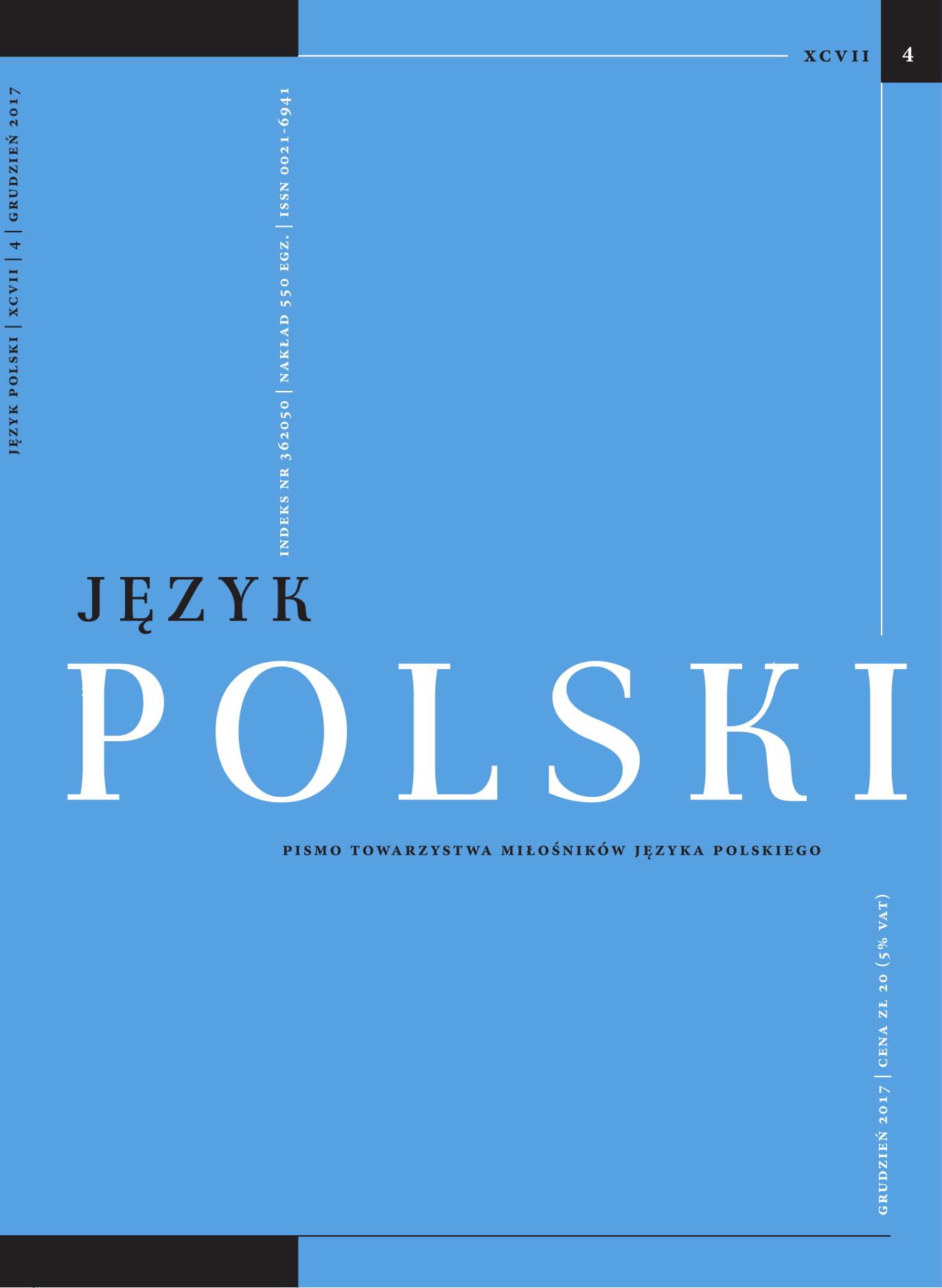Glosa czy nazwa terenowa? O dwóch dyskusyjnych miejscach XV-wiecznych ksiąg ziemskich
A gloss or a terrain name? On two disputable passages from the 15th century Old Polish “Acta terrestria”
Author(s): Zbigniew BabikSubject(s): Cultural history, Studies of Literature
Published by: Towarzystwo Miłośników Języka Polskiego
Keywords: Old Polish lexicography; Polish toponymy; wynikać; Wąbrzeźno; *ǫberg-
Summary/Abstract: The article, apart from an introduction devoted to the general issues illustrated with pertinent examples, consists of two main parts. In the first one, attention is drawn to the passage <ad torrentem do strumyena qui torr. Malwyna exilit Winiką s. defluit vel currit de fluvio s. alio torr. d. Scharowo> ("Acta terrestria" from the Kalisz area, Greater Poland, 15th century) known since 1922. Its <Winiką> was formerly interpreted as a proper name. However, a thorough analysis of the text leaves little doubt that this is an Old Polish gloss “wynikā” translating the preceding Latin ex(s)ilit ‘begins (of a river)’, thus a meaning otherwise unattested for this verb in Polish. The second part is devoted mainly to the etymology of the place name “Wąbrzeźno” (Northern Poland). It is suggested that the name derives from an almost fully extinct Ancient Slavic term *ǫbergъ ‘valley’, retained at the appellative level only in the somewhat remodeled formally dialectal Ukrainian appellative "uberezʹ" ‘id.’. There were some suggestions made by Cracow historians that a similar topographic term “wąbrzeżek” shows up in a passage from the local “Acta terrestrial” dating from 1429. However, according to lexicographers compiling “The dictionary of Old Polish” the respective passage of the source text reads as <Gnaszdowa brziszka>, which instead should be interpreted as a microtoponym. Thus, the problem needs further philological elucidation.
Journal: Język Polski
- Issue Year: 2017
- Issue No: 4
- Page Range: 49-58
- Page Count: 10
- Language: Polish

